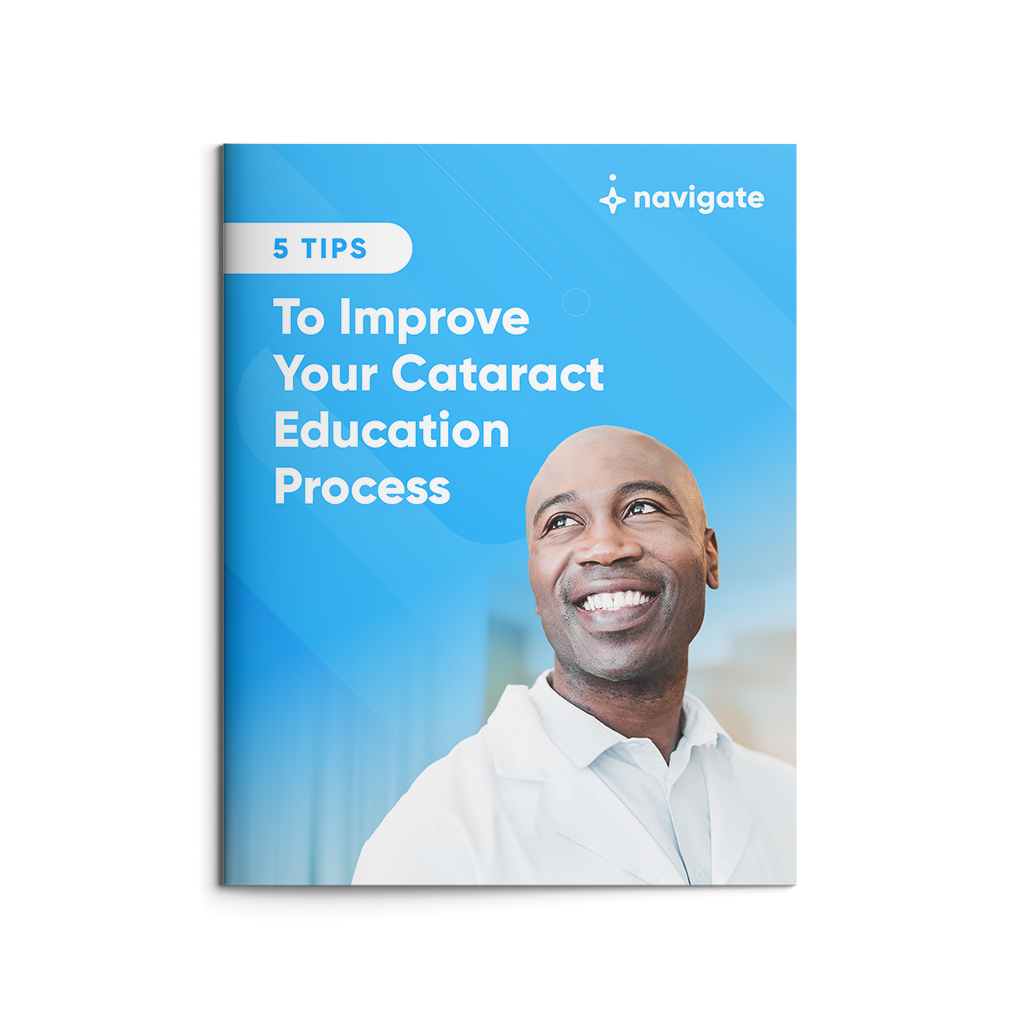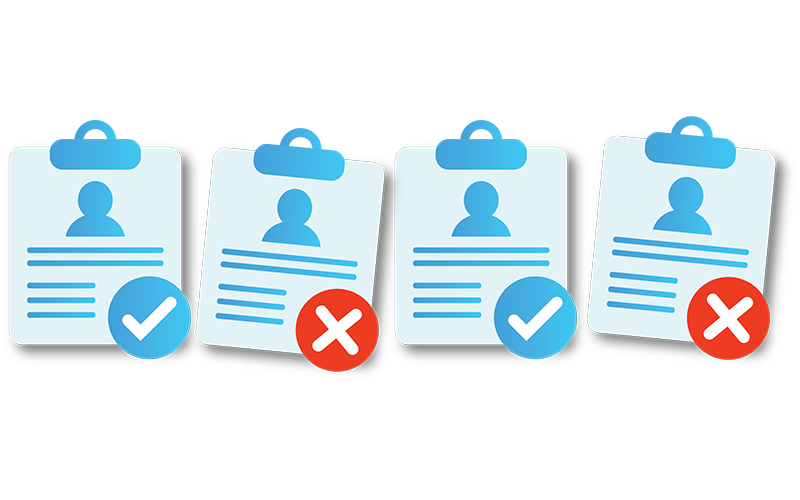The human approach to patient education
Connect with us to discuss how your practice can benefit from Navigate’s innovative one-on-one cataract patient education.
It’s time to rethink cataract patient counseling and education
One of the primary goals of any ophthalmic practice is to educate cataract patients about their diagnosis, options, and next steps. While patient education software can be economical and efficient, it does not provide the customized, human approach that cataract patients both need and deserve.
That’s where Navigate steps in. We serve as an extension of your practice by providing patients with a real-life Navigator to guide them through the cataract surgery process and answer any questions they have pre-consultation.
A customized resource for your patients, an asset for your practice
Your patients will love personal interactions with Navigators. Your practice will enjoy numerous behind-the-scenes benefits. A Navigate partnership:
- Improves the efficiency of cataract consultations
- Better educates patients on premium lens options
- Provides a consistent patient experience
- Relieves pressure from existing staff

How Navigate provides a seamless patient education experience
Once a patient books a cataract consultation, our Navigators become an extension of your practice. Our highly-trained Navigators communicate with patients on behalf of the practice, offering them a trusted, personal educator who helps them fully understand their options before they come in for their consultation. Here’s how it works:
Assign
A patient schedules a cataract consultation with your practice and we assign them to one of our Navigators who is an expert in cataract education.
Educate
Our Navigator, using important talking points approved by your practice, prepares patients for their consultation with the surgeon.
Share
Working as an extension of your practice, Navigators share what they learn with surgeons and their teams so that everyone is included in the process.

How does your current patient education process stack up?
Are you ready to get started improving your patient education process? Take our quick quiz for an evaluation of your current process and to see where Navigate can help you fill in the gaps.
Recent Posts

Download Our Free Guide
Ready to join practices across the country in leveling up cataract patient education? Start now by downloading our top five tips for improvement.


